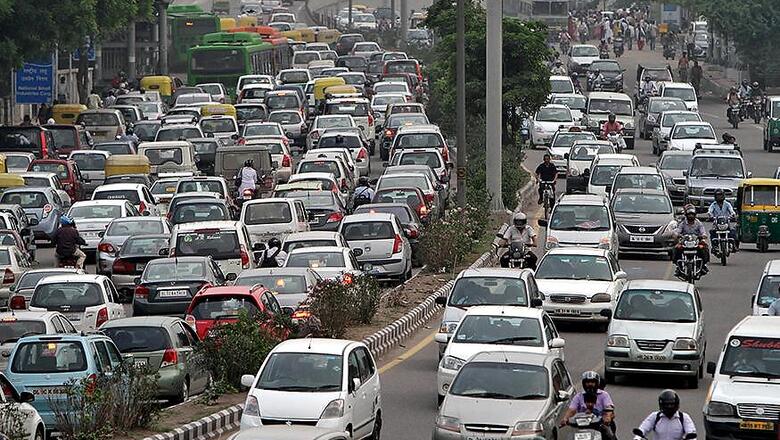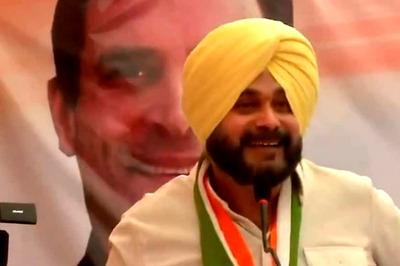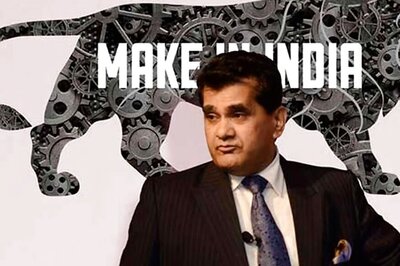
views
The auto industry has termed the clubbing of hybrid vehicles along with luxury cars in GST rates as environment unfriendly and regressive step, saying it went against plans to promote green vehicles. Under the GST rates announced, large cars with the engine greater than 1,500 cc and SUVs with length more than 4 metres and engine greater than 1,500 cc are slated to attract 15 percent cess over and above peak rate of 28 percent. Hybrid vehicles will also fall in the category under GST.
In comparison, tax on electric vehicles has been kept at 12 percent. At present hybrid vehicles attract excise duty of 12.5 percent, similar to the ones on entry level small cars such as Tata Nano or Maruti Suzuki Alto.
Some of the popular hybrid vehicles sold in India are Camry Hybrid and Prius from Toyota and Honda Accord. These are priced at Rs 31.98 lakh to Rs 38.96 lakh.
"This is a very environment unfriendly, regressive tax rate as far as hybrid vehicles are concerned. It goes against the government's drive to promote eco-friendly vehicles," Toyota Kirloskar Motor Vice Chairman and Whole Time Director Shekar Viswanathan told PTI.
He said this was not expected from this government, which has been very forward-looking otherwise. "Hybrids and electric vehicles feed on the same ecosystem and the least that they could have done was to keep the rate on hybrid vehicles at a peak rate of 28 percent without the cess," Viswanathan said.
Expressing similar sentiments, Maruti Suzuki India Chairman R C Bhargava said: "Putting hybrid cars at par with luxury cars is against the stated government policy to promote the use of such vehicles. We are going to seek clarity on the matter". He further said: "We believe it as an inadvertent error on the part of the government unless they have decided to change the policy on promoting such cars in the country".
Society of Indian Automobile Manufacturers secretary general Vishnu Mathur said: "We don't understand at this moment why the government has not continued with the promotion of hybrid vehicles when it is trying to promote green vehicles."
Honda Cars India Ltd (HCIL) Senior Vice-President (Marketing and Sales) Jnaneswar Sen said: "We will have to wait and watch till there is clarity on the second phase of FAME scheme. As things stand now, there will be an impact on Accord Hybrid".
Overall, the industry players were unanimous that the GST rates will not impact prices of normal cars and passenger vehicles in a big way. "As far as all cars are concerned, there would be minimal impact. It is only hybrid cars which will have an impact as they have been placed in the highest tax bracket along with luxury cars," Bhargava said. Viswanathan also said the GST rates will not push up car prices much and from that point, it is consumer friendly.
Society of Indian Automobile Manufacturers (SIAM) president Vinod Dasari pointed out that differential GST for electric vehicles would help electric mobility to gain momentum in the country. "We would have liked to see a similar differential duty on hybrid vehicles to continue," he added.
The government has always encouraged environment-friendly technologies and with the current focus on reducing emissions of greenhouse gases and carbon footprint, one would have expected the lower taxation to continue on such vehicles in a technology agnostic manner, Dasari said. Besides, the inclusion of 10-13 seater vehicles used mainly for public transport in the same tax bracket as luxury cars with a 15 percent cess is also unexpected and may merit a review, Dasari said.
Hyundai Motor India Director, sales and marketing, Rakesh Srivastava said the new GST structure seems to be a "zero sum game" for the auto industry. "The placement of green vehicles in highest slabs of GST is contrary to the spirit of promoting green mobility in India," he added. The move will adversely impact the hybrid vehicles' acceptance in future, Srivastava said.
Under the GST rates, cars will attract the top rate of 28 percent with a cess in the range of 1 to 15 percent on top of it. While small petrol cars with engines less than 1,200 cc will attract 1 percent cess, that with a diesel engine of less than 1,500 cc will attract 3 percent cess. Large cars with engines greater than 1,500 cc and SUVs with length more than 4 metres and engine greater than 1,500 cc will attract cess of 15 percent.
Earlier this year, the government withdrew incentives given to mild hybrid vehicles under FAME India scheme. With an aim to promote eco-friendly vehicles, the government had launched the FAME India scheme in 2015 offering incentives on electric and hybrid vehicles of up to Rs 29,000 for bikes and Rs 1.38 lakh for cars.




















Comments
0 comment